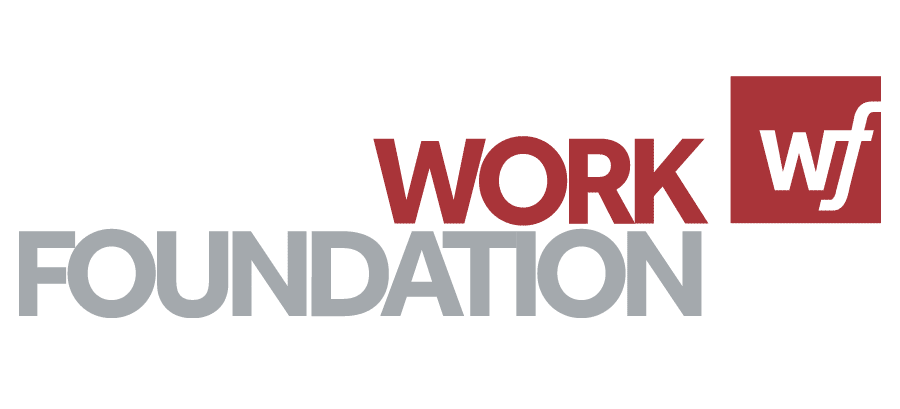Our Senior Research Associate Dr Calum Carson and Principal Analyst Rebecca Florisson have written a new article together for the International Public Policy Observatory, underlining the need for both employers and policymakers to embed disabled workers’ experiences at the heart of new remote and hybrid working models. You can read the article in full here.
Month: September 2023
By Simone Cheng, Senior Policy Adviser, Acas
As workplaces move beyond the traditional 9-to-5 office culture, the horizon unveils a promising era of hybrid working—blending the best of remote and on-site collaboration. But this revolution must be inclusive. We must ensure that no one is left behind, that every voice is heard in shaping the way forward, and that every door is open to opportunity.
With more disabled workers moving out of work than moving in, and the disability employment gap now at its widest point since 2018, there is a real urgency in ensuring hybrid working practices are both accessible and sustainable in the longer term.
That’s where the Inclusive Hybrid and Remote Working Study (IHRWS) comes in. This two-year project, led by Dr Paula Holland of Lancaster University, seeks to better understand disabled workers’ experiences of hybrid and remote working in order to promote more inclusive workplaces and indeed, greater labour market participation. Acas exists to make working life better for everyone, and so we are delighted to be involved in this timely and important study.
Insights from calls to the Acas helpline tell us that implementation of hybrid models can often fail to take account of disabled workers’ needs. Previous research by Paula Holland and The Work Foundation (a project partner on IHRWS) also found that of all respondents who requested additional support or new adjustments while working remotely, almost 1 in 5 (19.1%) had their request refused, with no alternative arrangements put in place. To make hybrid working work for disabled workers, Acas believes there are some fundamental actions employers should prioritise.
Listen to the evidence
A steady stream of research consistently points to the positives of hybrid working. A recent report by the CIPD, for instance, found that 68% of employers that offer hybrid or remote working say it has allowed their organisation to attract and retain more talent. Further, research by The Work Foundation noted a huge 85% of disabled workers felt more productive while working from home, adding to a long list of survey findings which challenge the myth of on-site productivity.
Evidence also shows the multitude of benefits of home and hybrid working on workers’ health and wellbeing. For disabled workers in particular, being in the comfort of one’s own space can provide the flexibility to manage their health condition in a way that suits them. This can include, for example, being able to take regular breaks or administer any medication as necessary, as well as having ready access to a support system around them, such as family and friends. A home environment can also mean less distractions and sensory demands, which can be of particular advantage to people with neurodivergent conditions.
In order to reap the benefits, however, organisations need to take a considered approach. Managed poorly and without an appropriate framework in place, hybrid working can have negative impacts on both physical and mental health, as well as more broadly on job satisfaction and job quality.
Understand the duty of care
As set out in Acas’s guidance on employers’ legal obligations, employers must by law do all they reasonably can to protect their employees’ health, safety and wellbeing at work. Thinking specifically about hybrid working, this includes the following:
- Carrying out a suitable and sufficient risk assessment of the home and employer workspace – If changes are needed to make sure an employee can work at home in a safe and healthy way, employers are responsible for making sure they happen
- Providing the appropriate equipment in every work location – Not only does this allow a smooth transition between different workplaces, but it can also reduce the risk of musculoskeletal complaints and disorders
- Being responsive to people’s needs – Reasonable adjustments are often very simple changes which carry little or no cost. These can come in all forms depending on individual needs, such as changes to start and finish times, ad hoc time off for medical appointments, assistive technology, or additional managerial support
- Protecting employees from discrimination, bullying and harassment at work – Employers must take steps to prevent discrimination, whether on site or at home. Policies should plainly set out what is and is not acceptable. Examples of remote discrimination include offensive remarks on social media, or inappropriately stopping someone from coming to meetings or activities
- Putting robust measures in place to minimise stress – Working remotely can make it easier to hide excessive hours or for people to work while unwell. As well as setting clear expectations around work, managers should agree regular check-ins with their staff to discuss wellbeing. Together, parties can identify any triggers and explore the potential solutions, including any reasonable adjustments
Of course, we should always strive to go beyond the legal minimum to cultivate an inclusive environment. Employers need to consider every aspect of working life and address any risks of marginalising their disabled workforce, whether inadvertently or otherwise. For example, it’s important to avoid ‘proximity bias’ so that those working remotely don’t have fewer learning and development opportunities than their office counterparts. Ongoing data gathering, including through direct engagement with disabled workers, representatives and staff networks, can provide helpful insights on where and which interventions are needed.
Take a people-centred approach
No two situations will ever be the same – the same disability can affect different people in unique ways, and conditions can fluctuate or progress over time. The very individual impacts of a health condition mean that managers need to be well-trained to have the knowledge and skills to engage sensitively in regular, two-way conversations with individuals to understand their specific needs. This is especially important in a remote setting where day-to-day signals might be less easily picked up.
As with every change, the path to progress requires thoughtful navigation. Managers and senior leaders should be purposeful in creating psychologically safer workplaces, backing up their commitments with tangible actions – from implementing strong policies, to talking openly and sharing personal experiences, to role-modelling positive behaviours. Everyone should feel able to open up about a health condition if they wish to and feel safe in the knowledge that sharing this information will each time be met with understanding, compassion and support.
Making hybrid working sustainable requires organisations to actively seek out the voices of their disabled workforce, and that engagement will prove far more meaningful if those workers are already empowered to speak up.
Simone Cheng is a Senior Policy Adviser for Workplace Policy at the Advisory, Conciliatory and Arbitration Service (Acas).
To have your own voice heard on how to make remote and hybrid work more inclusive within a post-pandemic employment landscape, please participate in this research by completing our survey of disabled workers’ experiences. Employers are making decisions now about future ways of working that will affect the long-term working conditions, health and wellbeing of disabled workers across the UK and beyond, so we thank you for taking the time to be involved in shaping these decisions through your own participation in this project.





